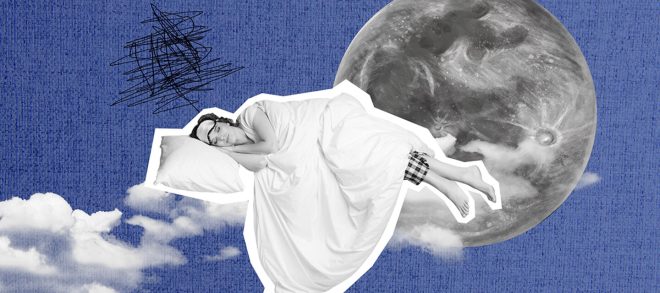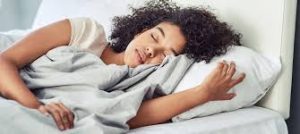
Beauty Sleep: How Sleep Impacts Your Skin and Hair
Lack of sleep doesn’t just make you angry, it can cause skin problems and make your hair look damaged.That’s why when you sleep, your body is busy working its magic, giving you a bright morning face and luscious hair on your head. Yes my friends, beauty sleep is real and not a trick our mothers tell us to sleep when we were children.
You can guess what happens when you don’t get a good night’s sleep. Dry skin and dull, lifeless hair are just two of many hair and skin problems.
Don’t believe that sleep really helps improve your appearance? Well, you’ve come to the right place. This blog helps explain the research on “beauty sleep” and answers some of the most frequently asked questions about this phenomenon.
Beauty sleep is not just a nice word. This is a critical time when your body goes into superhero mode, repairing, restoring and renewing your skin and hair.
Why is beauty sleep important?
Lack of sleep is not a prerequisite for under-eye bags. Not getting the recommended 7 to 8 hours of sleep each night can cause the skin to lack lustre and the hair brittle.
In fact, it would not be an exaggeration to say that sleep is the foundation of healthy skin and hair. During this time, your body produces and secretes hormones that are responsible for keeping you looking and feeling your best. These down times are your ticket to dazzling masterpieces, so it’s important to make sleep a priority in your daily life.
The Science Beneath the Sheets
While your brain is busy dreaming of what will float your boat, your body is working hard to balance hormones, regulate metabolism, and repair the daily wear and tear you’re dealt.
Growth hormones – The secretion of growth hormone during sleep increases collagen. Which means that the less time you sleep at night, the less time your skin,and hair have of repairing themselves.
Melatonin – Your hair and skin are exposed to many harmful chemicals and other harmful substances in the environment. Melatonin plays an important role in keeping hair and skin healthy.
Cortisol – Getting enough sleep helps your body regulate cortisol production. If you don’t get enough sleep, your body will continue the “fight or flight” response by producing excess cortisol, which can negatively affect your hair growth.

How lack of sleep affects the skin
Have you ever woken up feeling like, “I don’t know?” It all depends on how hard your skin works at night.
When you sleep, your skin cells begin to regenerate, promoting collagen production and fighting the villains of ageing and environmental stress.
Think of your skin as a pure, delicate gland worthy of the touch of an expert. Now imagine what would happen if you rejected the simple brush your canvas needs to make a beautiful painting.
Not sleeping is one of the worst things you can do to your skin. Here are some of the ways your skin may be unsatisfactory:
- Acne and skin blemishes are symptoms of sleep deprivation. Lack of sleep continues to increase cortisol production, which leads to increased fat production. A one-two punch provides the perfect solution to acne and other skin problems.
- If you don’t get enough sleep every night, you may develop dark circles under your eyes. The cosmetics industry has invested in your sleeplessness, creating many products designed to hide your lack of sleep from the outside world. Not getting enough rest each night can cause your veins to crack and darken, making them easily visible on your skin.
- Dullness and dehydration make your skin look grey and dull. Sleep is the time when the body promotes blood flow to the skin, providing it with necessary nutrients and oxygen. When there is not enough moisture, your skin becomes dry like a desert and loses its vitality and shine.
- Fine lines and premature ageing are also associated with not getting enough rest each night. Without enough collagen, your skin will age prematurely.
- Inflammation is the silent destroyer of healthy skin. Lack of sleep disrupts the body’s inflammatory response, causing the skin to become more red and swollen. It can worsen existing conditions such as eczema and psoriasis.

How does lack of sleep affect hair health?
What if I told you that the reason you have so much trouble styling every morning has nothing to do with the hair care products you use?
Most people think that when their hair gets a little difficult, they need to change their washing or styling mode or routine. Most of the time, what they really want is a good night’s sleep.
It’s not just your skin that’s causing you not to get enough sleep every night. Lack of sleep can cause some serious side effects, making your hair frizzy and unmanageable.
Brittle, easily broken hair
Have you ever wondered why your hair sometimes feels crispy like marshmallows? Insomnia is likely to be the cause.
During sleep, your body repairs and strengthens hair, keeping it flexible and less likely to break. Without enough sleep, your hair can become brittle, and break, like the hair you see at the bottom of the bird’s nest.
Empty and lifeless locks
During sleep, blood flow to hair follicles increases, providing nutrients and oxygen for hair growth and overall hair health.
When you don’t get enough sleep at night, your body doesn’t have time to complete these important processes. Your hair becomes nutrient deficient.
So, no matter how much money you spend on hair care products to make your hair look better, your hair will look dull and lifeless.
Hair thinning and loss
Increasing blood flow to your hair follicles not only helps your hair look beautiful and vibrant. It supports hair growth.
Scientists have found a link between hair loss and sleep deprivation. Sleep is the time when your body enters the process of repair and regeneration, delivering essential nutrients to the hair follicles to stimulate hair growth.
If you don’t get enough sleep each night, the rate at which new hair grows may slow down, causing hair to thin and fall out.
Premature greying
There’s no doubt about it: Gray hair is attractive. But this isn’t something most people look for early on. Another negative effect of sleep is the speed of these silver wires.
Oxidative stress affects the production of melanin, the hair colour pigment. If your idea of a good time isn’t spending time dying your hair to cover up premature greying, then find a good way to get more sleep.
What are some tips to help you sleep better?
Unlocking the art of beauty sleep is like discovering a powerhouse working for your skin and hair. You know it’s there, but you’re still looking for it.
When you understand the secret power of sleep to give you beautiful hair and skin, you can turn your night into a wonderful experience.
Keep sleep time consistent
Sleep techniques are not just for children. One of the mistakes many older people make is thinking that because they are old, they can go to bed whenever they want.
The problem with this idea is that it is harmful to your hair and skin health. Going to bed and waking up at the same time every day (yes, this includes weekends) helps regulate your body’s metabolism.
It is easier to fall asleep and wake up refreshed when you create a regular sleep schedule.
Create a soothing bedtime routine
How sad it is to be away from your electronics. However, if you want to sleep better at night, you should not use any electronic devices at least an hour before bed.
Research supports the idea that the blue light emitted by screens interferes with the body’s production of the hormone melatonin. Put your devices away to encourage relaxing sleep.
Tell your body it’s time to rest and relax with calming activities such as gentle stretching, meditation, and reading.
Create a good place to sleep
Work to make the place where you sleep a sacred place. Imagine cozy pillows, cozy blankets and dark, cool and quiet rooms.
If you have trouble sleeping, invest in blackout curtains, white noise machine, or an eye mask.
You may consider using sleep aids to improve sleep. Aromatherapy sleep inhalers contain all natural ingredients like hops, lavender, marjoram, and vanilla essential oils to help you fall asleep faster and promote deep sleep.
Be careful with midnight snacking
Eating fatty or spicy foods before bed disrupts sleep by causing indigestion or other stomach problems.
If you must snack, choose light options that won’t upset your stomach, such as unsalted popcorn or sunflower seeds. Foods containing omega-3 fatty acids (like avocados, kiwis, oranges, papayas, and even walnuts) all contribute to good sleep, so you can’t go wrong by eating them.
Hydrate (but not too late)
Staying hydrated every day is very important for healthy skin and hair. You shouldn’t just drink the recommended amount of water every day. You should avoid drinking alcohol and caffeine before bed because these can affect your sleep quality.
Try not to drink too much before going to bed. It is difficult to sleep for 7 to 8 hours if you keep waking up to urinate.
Move your body
Getting enough exercise during the day can help you sleep better at night. Just make sure you don’t exercise too close to bedtime, or an attack may occur. You may find that you have a lot of energy but not enough time to sleep.
This is because exercise causes the body to release feel-good chemicals, including endorphins. Physical activity also increases the production of adenosine triphosphate (ATP), which your body uses to do all its work.
